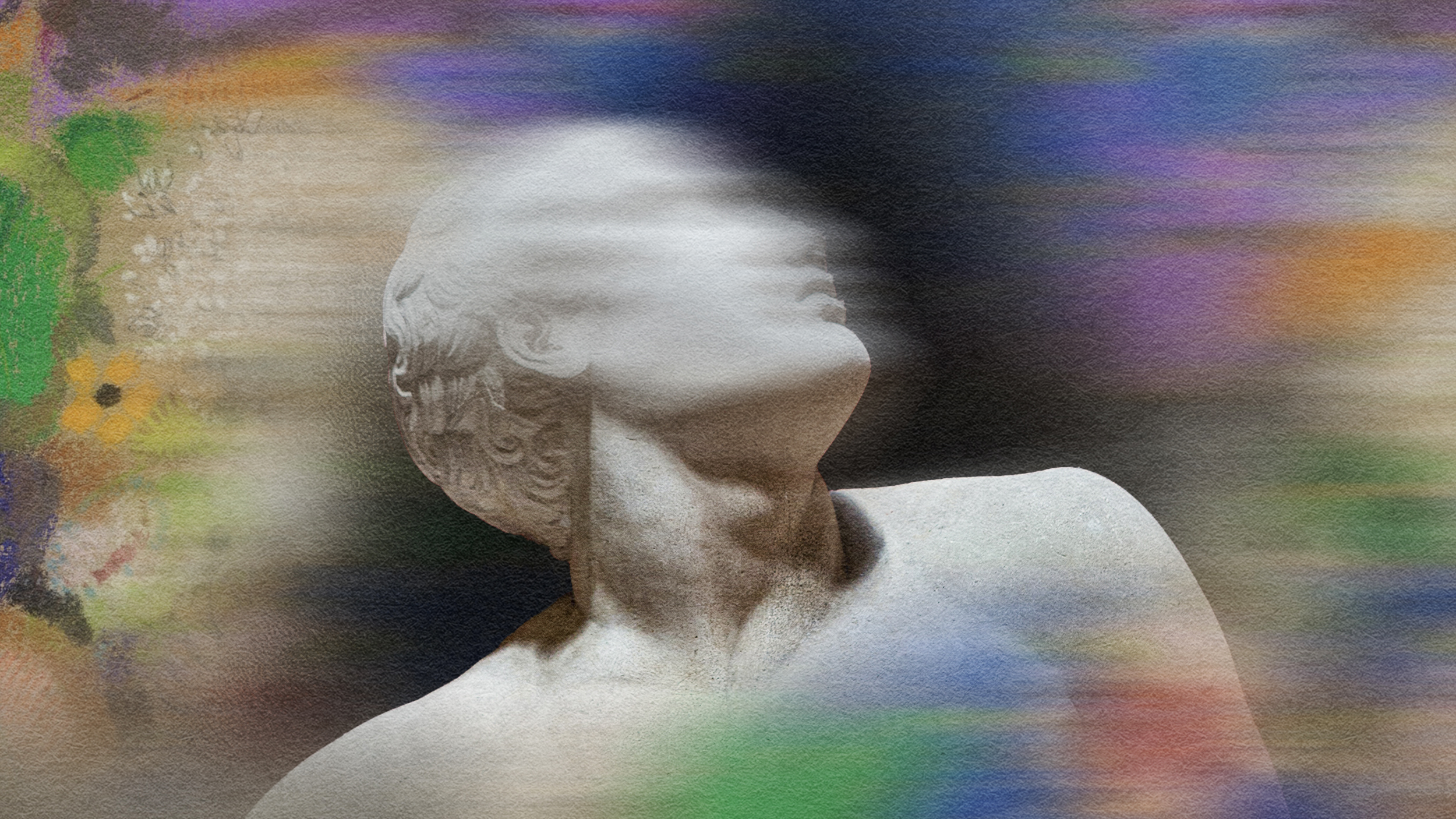Why memory is more about your future than your past

- Whenever we remember something, we alter that memory with our needs, beliefs, and perspectives.
- According to neuroscientist Charan Ranganath, this and other aspects of how memory works keeps our thinking nimble and flexible.
- If we want to keep our memories more vivid, we should pay attention to what makes them distinctive.
Katie Kermode is a memory champion who holds four world records for such impressive feats as memorizing 1,080 numbers in 30 minutes. Meanwhile, most of us can’t memorize a single password, recall a grocery list longer than seven items, or name that one actor who seems to be in everything. (You know the one.)
But Kermode and other memory virtuosos weren’t gifted with flawless memories. They train in techniques such as the “method of loci” to hack their working memories to manage vast amounts of information quickly. Research shows, however, that such training doesn’t impact general cognitive or memory functions. In other words, the life of a memory champion is as full of Post-It reminders and password managers as anyone else’s.
Certainly it would be better if our memories were a perfect record of everything we encountered, right? Not necessarily. According to Charan Ranganath, neuroscientist and the author of Why We Remember, humans evolved the memory system we did because it helps us stay attentive to what is important.
Big Think recently spoke with Ranganath to discuss how memories form, how they help keep our thinking quick, and what we can do to connect more with the memories that matter most to us.
Big Think: What’s wrong with the common assumption that memory is a recording stored in the brain?
Ranganath: Although it’s understandable that so many have that assumption, there are a few things off with it. The first thing is that we’re supposed to remember everything. The second is that when we remember, it’s an exact replay of what happened. Neither of those is true scientifically.
People retain only a fraction of the experiences they have. That’s true of everyone I know of who has been quantitatively studied. People also embellish their memories. They can distort them; they can make inferences.
I always say my phone has a photographic memory. I store lots of photos on it, I rarely go back to them, and if I want a particular one, I spend a long time searching for it. [Conversely], the brain is about quality over quantity. It’s designed to carry what you need so that you can be nimble and agile and find what you need when you need it.
A figment of the imagination?
Big Think: How do we alter memories when we remember?
Ranganath: There are two schools of thought. One school is that you form a new memory when you are remembering. The other school is that you actually alter the original memory. It doesn’t really matter which explanation is correct, subjectively speaking. The act of remembering changes the way you’ll remember an event later on.
In neurobiology, people talk about a phenomenon called reconsolidation. After a memory is activated, there are all of these chemical changes that effectively make the memory more vulnerable — that is, the connections between the neurons that help bring that memory to life become a bit unstable. Things can happen that can alter that memory at that point.
We can see this when remembering past events. When we tell the same memory over and over, it becomes less detailed and more rote. It reflects a kind of story rather than a re-imagining of what happened.
We think, ‘Oh, nobody can predict the future. That’s just psychic nonsense.’ But we all predict the future every day.
Charan Ranganath
Big Think: How does imagination play a part in memory embellishment?
Ranganath: A memory is not only the things we saw and heard; it’s also our thoughts and our feelings. That means that when you remember something, it’s not just what happened. It reflects your interpretation of what happened.
For instance, if you’re tired of work, you might remember a beach vacation and think, “That was so great!” On the other hand, if money is tight and your family is bugging you to take another trip, you might look back on the same vacation and think, “We stood in line forever at the airport, and we all got sick after we came back.”
Both are true, but the way we imagine it can be very different depending on your goals, perspectives, and beliefs.
Through no fault of one’s own memory
Big Think: So, can our memories be described as “faulty”?
Ranganath: If the goal was to store everything in some mental vault, then from that perspective, memory is faulty. But if the goal is to use the past in meaningful ways, combine different experiences creatively, or consider new possibilities, then our memory is doing exactly what it should be.
For instance, the brain is optimized to process information quickly and then generate a prediction about what’s going to happen next. The value of that predictive processing is not only that it’s fast; it also optimizes the information you get. Even when our predictions are wrong, that orients us to where the new, important information is.

Imagine I walk into my friend’s kitchen. My eyes aren’t going to move randomly all over the place. They’re going to scan the kitchen counters and then the refrigerator. They’re going to go to the places where my brain expects important things to be. That’s all based on our previous experiences and knowledge of kitchens.
But now let’s say I go into my friend’s kitchen and find someone has left my guitar on the counter or a blender on the floor. My eyes will gravitate to them before I’m even aware of it. That’s memory in action. My memory tells me where everything is supposed to be, and when something violates that expectation, it becomes a point of maximal information. I don’t even need to form a new memory. It’s only the new information that I really need to take in.
It’s so powerful because we think, “Oh, nobody can predict the future. That’s just psychic nonsense.” But we all predict the future every day. Sure, sometimes we’re better at it than other times, but we are pretty good at it, and that’s what memory is all about.
Keeping memory in the picture
Big Think: What should we expect from our memories, and how can we get the most out of them?
Ranganath: We can expect that our memories can be fragmentary, and they’re definitely going to be incomplete.
While there are many tips for memorizing particular kinds of information, a basic principle of memory is that memories compete with each other. That’s not necessarily intuitive. We tend to think that people have a memory, it goes into this mental slot, and then you pull it up. In fact, that thing you’re storing in your memory is competing with all these surrounding memories.
The analogy I like is that of a cluttered desk covered in standard yellow Post-It notes. If I want to find the note with my bank account password on it, it’s going to take forever. On the other hand, if I wrote the password on a hot pink or fluorescent green Post-It, it’s easy to locate because it’s different from everything else.
So, the principle for having something be memorable is to attend to what’s distinctive about it. The more you can attend to what is distinctive and be mindful of it, the more vivid the memory.
We’re constantly taking pictures and then throwing them on social media. But this is the ultimate form of electronic amnesia.
Charan Ranganath
[For instance], we’re constantly taking pictures and then throwing them on social media. But this is the ultimate form of electronic amnesia. You’re cheating your experiencing self because you don’t connect with what’s happening, and you’re cheating your remembering self because you’ve deprived yourself of a great memory.
So instead of taking pictures of every moment of your vacation, pay attention to what makes a particular moment distinctive. Ask yourself: What is going to be most memorable in each picture I take? How can I compose the picture to focus on the vivid details that will bring me back to this time and place?
That’s when pictures become valuable — when they force you to pay attention to the things that are important to you in that moment.
Big Think: Anything you’d like to add?
Ranganath: I would like people to change their expectations about what their memory is and should be for. That may help us be more forgiving of ourselves and others.
It can also be important for the expectations of how we learn. A lot of kids struggle in school, and we tend to view struggle as bad, but one of the messages in my book is that struggling is a sign of learning under the right conditions. The process of working through something is a learning process.
The last thing is that memory should give you more options, not fewer. Memory can sometimes leave you with a narrow worldview if you become stuck in the same beliefs, looking for the same information that confirms what you remember to be true. That’s when memory leads you to get stuck in a corner.
Instead, you should use memory to strategically think of things that can help you in the present or [generate] future possibilities — giving you the options that will help you be more flexible, creative, and imaginative.






